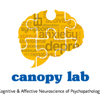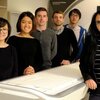
Cognitive Neuroscience
The faculty in cognitive neuroscience offer a comprehensive program encompassing both human and animal approaches to questions about functional organization and neural architecture of cognition. Specific areas of faculty interest include memory, attention and performance, aging, language, emotion, and the development and refinement of brain imaging methods. The research of the cognitive neuroscience faculty makes use of a vast array of methods, including functional and structural MRI, psychophysiological recordings (e.g., ERP), eye-tracking, neuropsychological testing, and optical readings (EROS and NIRS) in humans, as well as electrical stimulation (e.g. TMS), and pharmacological and lesion preparations in animals.
Because of the highly collaborative nature of the work of members of this program area and the hands-on methodological training offered, students in the program have exposure to, and are encouraged to gain direct experience with, a number of these methods. This program is strongly research-oriented. Each graduate student works directly with a faculty adviser on original research from the onset of his/her graduate career, including the conducting of a first-year project.
Faculty working in Cognitive Neuroscience















Related News
- Professor Sepideh Sadaghiani is an Associate Professor of Psychology in the Cognitive Neuroscience program area. She directs the CONNECTlab at the Beckman Institute for Advanced Science and...
- Professor Aron Barbey and co-author Evan Anderson found that network neuroscience theory allows the most accurate predictions of intelligence. Click...
- Congratulations to Psychology Professor Kara Federmeier, who has been elected a Fellow of the American Association for the Advancement of Science! Federmeier is an expert in cognitive neuroscience,...




